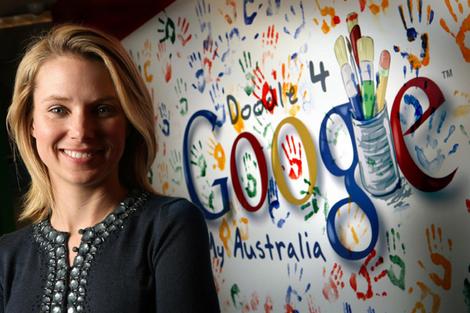Marissa Mayer, VP of geographic and local services at Google is another familiar name. One of the first employees at Google, she talks in her Newsweek interview about women in technology, women at Google, her career and Google's commitment to diversity. Although the percentage of women at Google hovers at the meagre 15 - 17%, she says this about the commitment:
"It’s something that they’ve had to work at over time. There was one point in the early days when we had hired 16 men in a row into engineering, and Larry said, “You know what? If we get to 20, I’m not going to sign any more offer letters until you start producing an equal ratio of women.” That was the moment when we really started recruiting for technical women, helping to build programs around it, really putting a lot of effort into it. So it’s something that the founders have always been very focused on.
This stands out because it shows the importance of leadership at the top and concrete steps that companies can take.In addition to hiring technical women, we’ve done a lot of things here that are aimed at making it a very good place for women to work. For example, in our hiring practices we make sure there’s a woman engineer on each interview, and I think that makes a big difference in terms of how engineers relate to each other. Because there are a lot of male engineers who can only really relate to other men."
Recently I spoke with a CEO of a global company about the feasibility of getting other CEOs to sign a commitment to require HR to float diverse slates of candidates for C-suite and feeder positions. She told me the story about a C-level opening at her company. HR had done the usual things - posted the opening on Monster and other sites - and she said, "not one woman applied." That didn't surprise me. Business-as-usual hasn't significantly moved the percentages of women at the top in years.
What it will take is business-not-as-usual. Actions such as Larry Page's announcement at Google that he wouldn't sign new offer letters until the gender ratio changed. The HR exec at the company that got zero applications from women could have actively sources for such an important position - and her CEO might have required a diverse slate (but didn't). What business-not-as-usual is your company taking?
Lead ON!
Susan
Susan Colantuono is CEO of Leading Women and author of No Ceiling, No Walls. Follow her on Twitter.






No comments:
Post a Comment